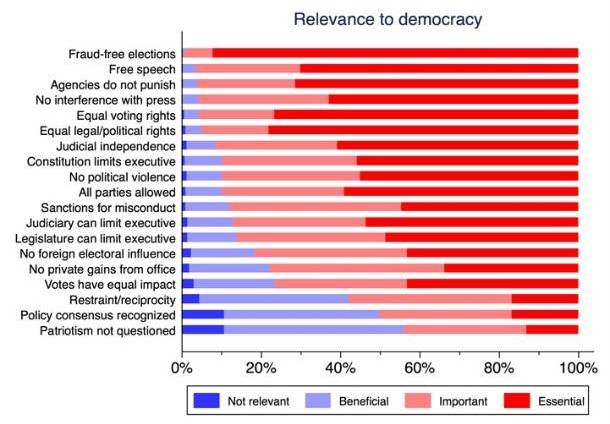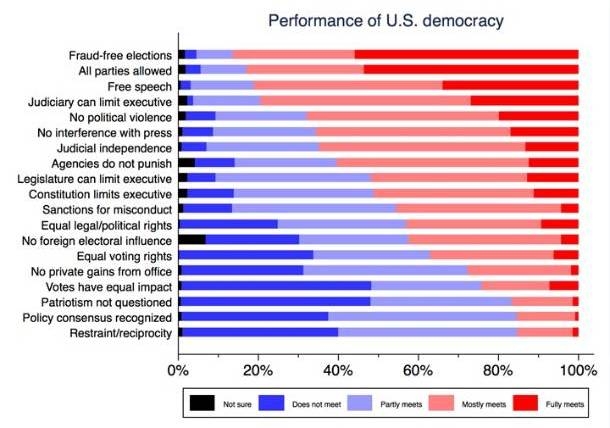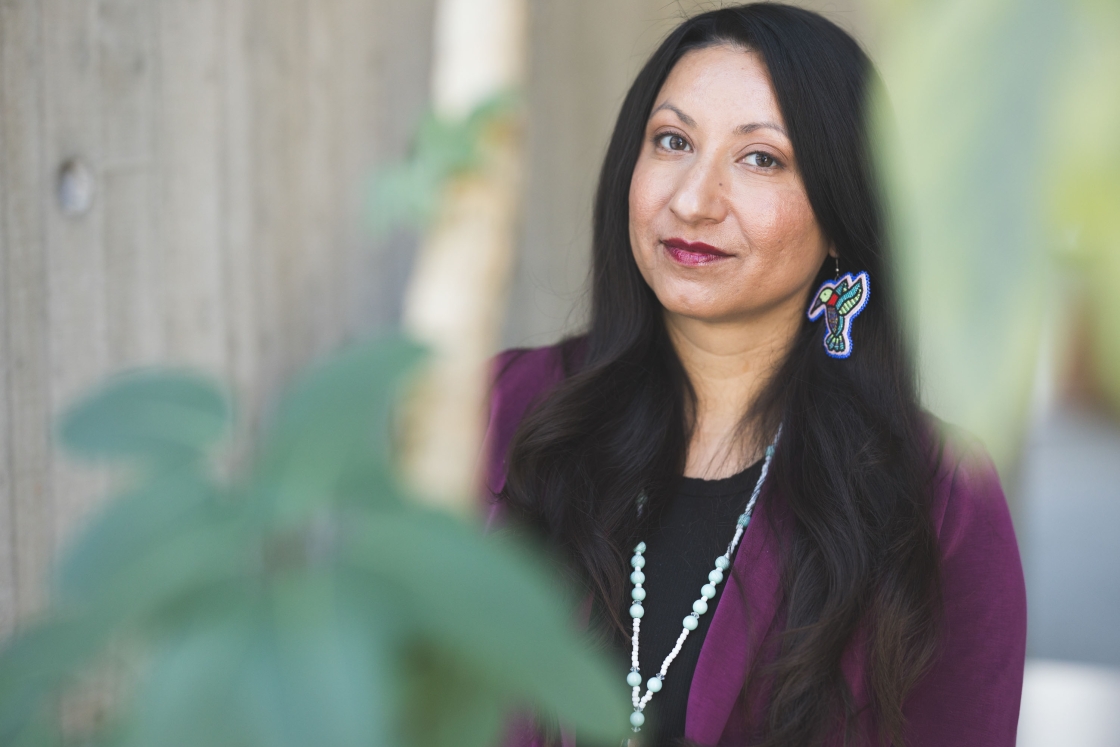Feb. 23, 2017 — With the 2016 presidential election over and a new and historically unique administration in office, the practices and norms that define U.S. democracy are coming under challenge. Political scientists from Dartmouth College, the University of Rochester and Yale University have collaborated to launch a new initiative, Bright Line Watch, that will monitor the status of democratic practices and highlight potential threats to American democracy.
Bright Line Watch currently has three projects in the works, one of which has been completed. The first is a survey of university political scientists providing benchmark data on the current quality of democracy in the U.S. The findings from this survey were just released today. The second is an international conference that will be hosted in partnership with the Yale Program on Democracy in which renowned scholars will assess historical examples of the degradation or destruction of democracy and what they suggest about the U.S. case. The third is a commissioned series of briefing papers in which experts will brief the press and the public on what research has learned about topics such as harassment and suppression of a free press; racism, anti-Semitism, religious intolerance, and restrictions on protests and democratic practice.
Highlights of the findings from Bright Line Watch’s first U.S. Democratic Survey are presented below. The survey generated over 1,500 responses from nearly 10,000 political science faculty (regular, adjunct and emeritus) at over 500 U.S. institutions represented at the American Political Science Association’s 2016 Annual Meeting. The purpose of the survey was to canvas respondents on what principles are most important or essential to democracy in theory and to assess the state of democracy in the U.S. today. Below are bar charts from the findings reflecting the proportions of responses in relation to 19 principles associated with democracy.
Among the 19 principles listed in the survey, elections without fraud topped the list – 92 percent rated it as essential. Free speech came in second, and no surveillance and harassment by government agencies, a free press, and equal access to vote, came in third, fourth and fifth, respectively. Interestingly, the principles that elections should be free from foreign influence and that all votes should have equal impact on elections outcomes ranked 14th and 16th in the list, respectively.
Image  |
Image courtesy of Bright Line Watch |
In terms of the performance of U.S. democracy, a majority of respondents viewed the U.S. as mostly or fully meeting the standard in question for only 10 of the 19 democratic principles canvased. While 86 percent viewed U.S. elections as either mostly or fully being free from widespread fraud and manipulation, more than half indicated that U.S. elections do not meet the standard of being free from foreign influence.
Image  |
Image courtesy of Bright Line Watch |
“Our respondents rated American democracy high on some important counts, like clean elections, but they also identified some areas where our democracy is compromised. We’ve established a good benchmark now, so we can track any changes across all these different elements of democracy going forward,” says John Carey, John Wentworth Professor in Social Sciences at Dartmouth, who is one of the four co-founders of Bright Line Watch.
Bright Line Watch reports that the survey results “provide significant reason for concern.” Among the concerns are that only 66 percent are confident that journalists can operate unimpeded by the state and only 52 percent believe that Congress can effectively check the executive. Similarly, only 50 percent are confident that executive authority can be constrained within constitutional limits. In addition, the U.S. performance on equal legal/political and voting rights was rather dismal, which most likely reflects institutions of exclusion and inequalities that have existed in our society for many years.
The data from the first survey will serve as a baseline for future Bright Line Watch quarterly surveys. In these surveys, they will add new comparisons and time periods to evaluate political scientists’ perceptions of U.S. democracy in practice. Bright Line Watch provides additional background on their website about the survey, its findings and the choices behind its design.
In addition to John Carey of Dartmouth, the other co-founders of Bright Line Watch are: Gretchen Helmke, professor and chair of political science at the University of Rochester; Brendan Nyhan, professor of government at Dartmouth; and Susan C. Stokes, John S. Saden Professor of Political Science at Yale University. All four co-founders have extensive experience in the study of democracy.
John Carey (john.m.carey@dartmouth.edu) and Brendan Nyhan (brendan.j.nyhan@dartmouth.edu) are available to comment about Bright Line Watch and the findings of the first survey.

